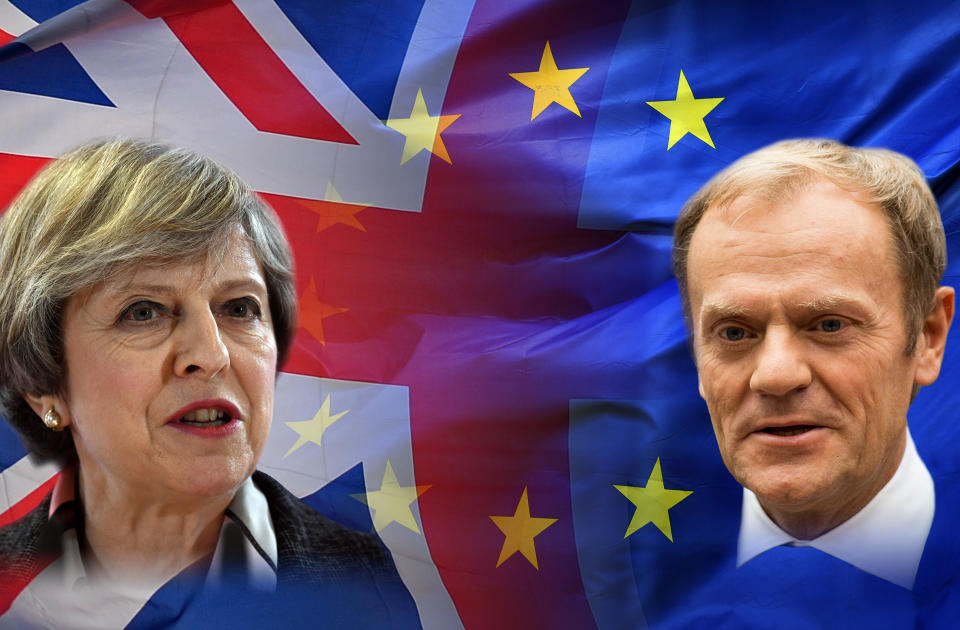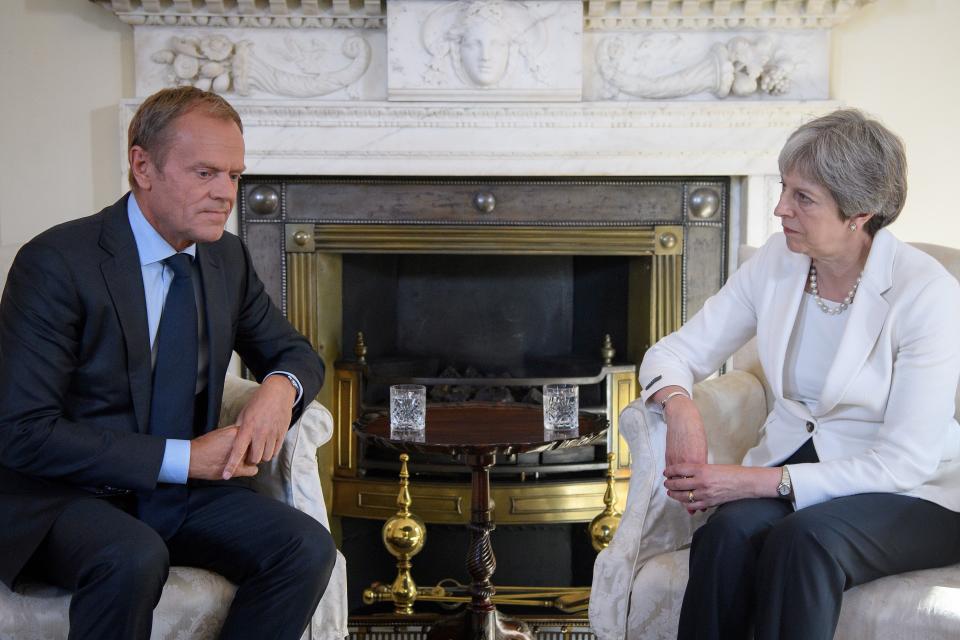Brexit deal deadline to be pushed back to November to ‘avoid a catastrophe’

The deadline for a Brexit deal is set to be pushed back to November under plans to be discussed by EU leaders this week.
The European Council summit on October 18 has long been the official cut-off point for an agreement on the Withdrawal Agreement and future relationship between the UK and EU.
But the need for a separate Brexit summit in November has been raised in recent weeks as the two sides struggled to reach consensus on outstanding issues despite an intensification of talks.
Now it has been confirmed that European Council president Donald Tusk will formally propose a new timetable at the EU leaders summit being held in Salzburg on Wednesday and Thursday.
“As we are reaching the last lap of negotiations, there is a need to plan the process ahead,” said a senior EU official.
MORE: Sterling jumps on hopes of Irish border Brexit solution
“In that context, president Tusk will propose an additional extraordinary European Council in November. That will be discussed in Salzburg.”
The delay is largely down to the impasse over a backstop solution to avoiding a hard border in Ireland that is acceptable to both sides.
The EU’s backstop proposal has been rejected by the UK because it effectively creates a customs border in the Irish sea, while the UK’s plan was rejected by the UK because it was temporary and applied to the whole of the UK, rather than only Northern Ireland.
In a bid to break the deadlock, EU chief Brexit negotiator Michel Barnier is drawing up new proposal that respects the UK’s position.
In his pre-summit letter to EU leaders, Tusk said the meeting will “reconfirm the need for a legally operational backstop on Ireland, so as to be sure that there will be no hard border in the future.”

“Limiting the damage caused by Brexit is our shared interest,” he added.
Tusk also warns that a ‘no-deal scenario’ remains “quite possible”, but finishes his letter by saying: “If we all act responsibly, we can avoid a catastrophe.”
The other major Brexit issue on the agenda is the political declaration on the future relationship between the UK and EU which must accompany the Withdrawal Agreement.
The EU have said the economic pillars of the Chequers plan – UK participation in the single market for goods and a customs arrangement which would see the UK collect tariffs for the EU – are “unworkable.”
But prime minister Theresa May says Chequers is the only alternative to ‘no-deal’ and will push the merits of her plan when she addresses the other 27 EU heads of state at the end of their dinner on Wednesday evening.
MORE: EXCLUSIVE: EU says publishing its Chequers analysis would risk ‘jeopardising’ Brexit deal
The leaders will then meet for a working lunch without UK represenatation on Thursday for a discussion over their Brexit strategy with Barnier.
If there is continued disagreement over the future relationship, the EU may put forward a detail-light political declaration in November in order to get a deal over the line.
“It’s quite clear that when it comes to Chequers there are a number of elements where one can say that the convergence of views is taking place but it’s also clear that there are still differences of approach on a few fundamental issues,” said a senior EU source.
“There are potentially two approaches: have a joint political declaration which is very much clear to the last point or to have a political declaration which while registering an agreement on a number of issues, leaves a certain space for negotiations in the future on a number of issues.
“I think this is going to be at the core of the debate in Salzburg.”
MORE: Juncker rejects May’s plan for frictionless trade after Brexit

 Yahoo Finance
Yahoo Finance 